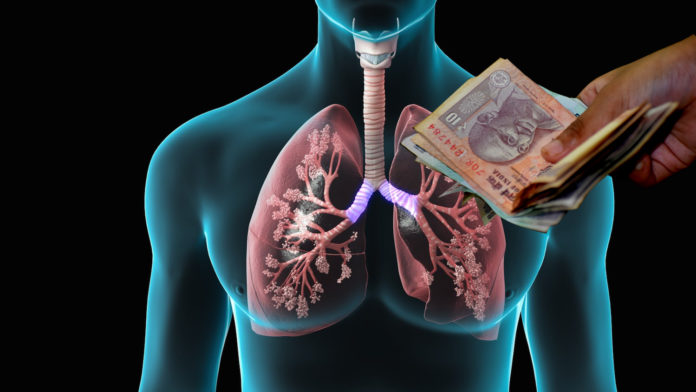A committee of the department of expenditure that vets all scheme spending, has approved an incentive of Rs 500 for all TB patients irrespective of income level.
TB is a disease of undernutrition and the money is for nutritional support. However the Strategic Plan for TB Elimination released earlier this year had talked of a Rs 2000 incentive that has now been brought down because of fund constraints, say sources in the ministry of health. The plan aims to eliminate TB in 2030 but prime minister Narendra Modi has committed that India would achieve that target by 2025. The Expenditure Finance Committee in its meeting on Friday approved an annual budget of Rs 600 crore for the incentive scheme.
Under-nutrition is a risk factor for tuberculosis which in turn worsens the nutritional status, generating a vicious cycle which can lead to adverse outcomes
“In tuberculosis as in many other infectious diseases, there is a bidirectional interaction between nutritional status and active disease. Under-nutrition is a risk factor for tuberculosis which in turn worsens the nutritional status, generating a vicious cycle which can lead to adverse outcomes (during and following therapy) for patients with active tuberculosis including those with multi-drug resistant TB. This interaction is particularly important in the Indian context where food insecurity and under-nutrition coexist with a large burden of tuberculosis. To address this issue it is proposed to launch a scheme to provide a monthly cash incentive for every TB patient through DBT. ,” says the National Strategic Plan.
TB kills an estimated 480,000 Indians every year and more than 1,400 every day. India also has more than a million ‘missing’ cases every year that are not notified (despite a government directive on mandatory notification of TB cases) and remain either undiagnosed or inadequately diagnosed and treated in the private sector.
Fund constraints are not new in India’s 50-year history of TB control. A joint monitoring committee set up for the purpose of evaluating the TB programme had singled out fund constraint as a major challenge. The strategic plan says: “The JMM 2015 observed that the implementation of the NSP for 2012-2017 did not achieve the projected increase in case detection by the RNTCP. In addition, the ambitious expansion of resources planned under the NSP, 2012-2017 will have tripled the expenditure of the prior plan, but has not been matched by allocations. While RNTCP expenditure has increased 27% since 2012, there is a growing gap between the allocation of funds and the minimum investment required to reach the goals of the Plan.”
